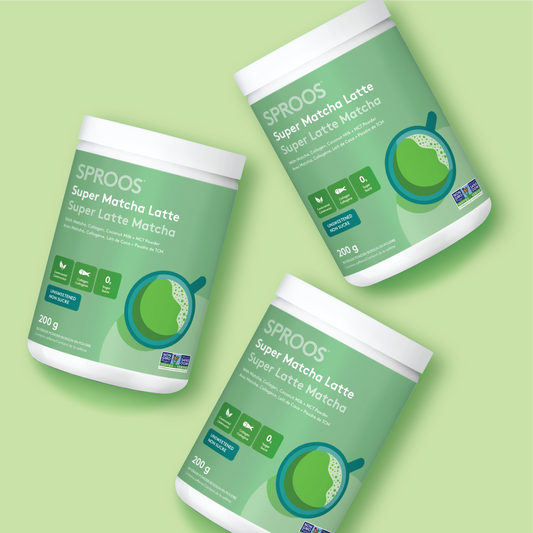Sommeil. C'est quelque chose que nous faisons tous et pourtant son importance ne semble pas suffisamment soulignée en ce qui concerne la santé et le bien-être. Nous avons tous traîné toute une journée (ou plusieurs) après une mauvaise nuit de repos et savons ce que c'est que de lutter pour accomplir les tâches quotidiennes avec un brouillard cérébral, de la fatigue ou de la somnolence, de l'irritabilité et un sentiment général d'être
décalé. Malgré cela, beaucoup de gens sacrifient souvent le sommeil pour avoir plus de temps pour faire des activités telles que travailler, socialiser, étudier, etc. Mais le sommeil est crucial pour suivre le rythme de la vie quotidienne. Tout se résume vraiment au sommeil et à l'impact qu'il a sur notre cerveau, tout, de la fonction motrice (mouvement) à la physiologie (pensez : hormones) en passant par la cognition. Alors, plongeons-y.
Fait amusant : la plupart des gens passent environ un tiers de leur vie à dormir !
Malgré le fait que le sommeil occupe une grande partie de notre vie, il reste encore beaucoup de recherches à faire pour comprendre pleinement l'impact et l'importance du sommeil sur notre cerveau.
Un manque de sommeil a un impact négatif sur la concentration et l'attention.
Le manque de sommeil peut avoir un effet significatif sur le corps. Il peut provoquer une diminution de la vitesse de réaction ainsi qu'une vigilance, une attention et une vigilance réduites ou imprévisibles. Au cours d'une journée normale, la vigilance et l'attention restent principalement stables avec quelques variations tout au long de la journée. Cependant, lorsqu'une personne commence à rester éveillée pendant de plus longues périodes (généralement plus de 16 heures), elle commence à montrer une diminution significative du temps de réaction et une détérioration de l'action psychomotrice (pensée active qui provoque une action physique). La capacité à rester concentré pendant une longue période commence également à diminuer.
Le sommeil ou son absence impacte également notre perception sensorielle.
Lorsque nous parlons de perception sensorielle, nous faisons référence aux différents sens – la vue, l'ouïe, l'odorat, le goût et le toucher. En général,
les personnes bien reposées ont des réponses plus rapides et plus précises aux stimuli qui affectent nos sens. Par exemple, celles qui sont bien reposées démontrent une meilleure perception visuospatiale (la capacité à traiter les informations visuelles sur la position des objets dans l'espace) que celles qui sont privées de sommeil. De même, celles qui dorment suffisamment ont une réponse plus rapide aux sons que celles qui sont privées de sommeil. Les individus bien reposés ont une plus grande tolérance à la douleur que ceux qui ne le sont pas. Encore une fois, les personnes bien reposées sont capables d'identifier mieux les odeurs comparées aux personnes privées de sommeil. Il existe même des preuves suggérant que la privation de sommeil peut entraîner une diminution de la sensibilité aux goûts acide, salé et sucré ! La morale de l'histoire ici :
le sommeil peut avoir un grand impact sur nos sens.
Un manque chronique de sommeil peut également affecter les fonctions quotidiennes.
Lorsque nous pensons au manque de sommeil affectant notre capacité à accomplir nos tâches quotidiennes, nous pourrions penser qu'une seule nuit avec trop peu d'heures est le principal problème. Et bien que la privation de sommeil intense affecte définitivement notre cerveau et son fonctionnement, la restriction du sommeil (moins d'heures de sommeil par nuit que recommandé) a également un impact significatif.
Une étude a examiné l'effet de la restriction chronique du sommeil sur le comportement de 48 adultes. Les périodes de sommeil ont été limitées à 8 heures, 6 heures ou 4 heures pendant 14 jours consécutifs. La performance cognitive de ceux qui étaient limités à 6 ou 4 heures de sommeil par nuit a diminué au cours des 14 jours, tandis que ceux qui dormaient 8 heures chaque nuit sont restés constants dans leur performance cognitive. La concentration et la vigilance ont diminué chez les personnes ne dormant que 6 ou 4 heures par nuit, tout comme leurs temps de réaction. Ce qui est encore plus intéressant ? Les participants qui avaient moins d'heures de sommeil chaque nuit ne se rendaient pas compte de l'étendue à laquelle leurs capacités cognitives avaient commencé à décliner !
Le collagène a-t-il un rapport avec le sommeil ?
Vous vous demandez peut-être,
le collagène a-t-il un lien avec le sommeil ? Eh bien, cela peut surprendre, mais oui, il y a une relation ! Comme toute protéine, le collagène est composé d'acides aminés, les éléments constitutifs des protéines. Un acide aminé que l'on trouve dans le collagène est la glycine. C'est là que cela devient intéressant. La glycine joue un rôle dans notre système nerveux, qui est affecté lorsque nous nous préparons à dormir. Lorsque nous commençons à avoir sommeil, certaines parties de notre cerveau commencent à envoyer des signaux à d'autres parties du corps via le système nerveux, indiquant qu'il est temps d'aller dormir. Ces signaux vont atténuer ou éteindre l'activité liée à l'éveil (l'éveil) et amplifier ou activer l'activité liée au sommeil et à la relaxation. Certaines de ces réponses incluent la diminution de la température corporelle et l'augmentation de la relaxation musculaire. Parce que la glycine affecte notre système nerveux, des études ont été menées pour étudier l'effet de la glycine sur le sommeil. En fait, une étude a examiné
l'effet de l'ingestion de glycine avant le coucher sur la qualité du sommeil. Des hommes et des femmes âgés de 30 à 57 ans ont participé à cet essai contrôlé par placebo. À la fin de l'étude, les participants ont répondu à un questionnaire sur leur expérience de sommeil, et les chercheurs ont constaté que la glycine améliorait la qualité et l'efficacité du sommeil. Cela signifie que non seulement les participants prenant de la glycine se réveillaient en se sentant plus reposés, mais ils pouvaient aussi s'endormir plus rapidement une fois au lit.
La conclusion ?
Un sommeil suffisant est crucial pour le fonctionnement quotidien car il a un impact si important sur notre cerveau et tout ce qu'il fait pour nous. Il joue un rôle dans tous les aspects de notre comportement quotidien, y compris nos sens, nos émotions et notre cognition. Le manque chronique de sommeil affecte tellement le fonctionnement de notre cerveau, alors assurez-vous d'avoir
une bonne nuit de repos chaque nuit. Le collagène peut également potentiellement jouer un rôle dans le sommeil car il contient un acide aminé crucial pour notre système nerveux. Qui sait, peut-être que l'ajout de collagène à votre routine nocturne pourrait vous aider à mieux dormir !
Sources
- Killgore, W. D. S. (2010). Effets de la privation de sommeil sur la cognition. Dans G. A. Kerkhof & H. P. A. van Dongen (Éds.), Progress in Brain Research (Vol. 185, pp. 105-129). Elsevier.
- Van Dongen, H. P. A., Maislin, G., Mullington, J. M., & Dinges, D. F. (2003). Le coût cumulatif de l'éveil supplémentaire : effets dose-réponse sur les fonctions neurocomportementales et la physiologie du sommeil suite à une restriction chronique du sommeil et une privation totale de sommeil. Sleep, 26(2), 117-126.
- Yamadera, W., Inagawa, K., Chiba, S., Bannai, M., Takahashi, M., & Nakayama, K. (2007). L'ingestion de glycine améliore la qualité subjective du sommeil chez des volontaires humains, corrélée à des changements polysomnographiques. Sleep and Biological Rhythms, 5(2), 126-131.















